European Parliament event spotlights PAREA’s policy paper on rethinking unmet medical needs criteria
Yesterday, the European Parliament was the setting for a meeting of the MEP Action Group for the Medical Use of Psychedelics. This first meeting, held under the auspices of the recently established group, marked a significant step towards upscaling novel mental health treatment within the EU pharmaceutical legislation's framework.
Meeting recording:
The event, which coincided with the ongoing discussions on the revision of the EU pharma package, focused on creating a supportive regulatory environment to foster innovation in novel mental health treatments, particularly psychedelic therapies. The gathering underscored the urgency of addressing unmet medical needs in the EU and the potential of psychedelic therapies to offer rapid, durable improvements for conditions such as depression and PTSD.
In conjunction with this event, PAREA launched a policy paper: “Unmet Medical Needs: Aligning Medical Innovation with Societal Health Needs”. The paper challenges the current paradigm that narrowly defines unmet and high unmet medical needs. It argues that the existing focus on life-threatening or severely debilitating conditions fails to consider the broader health and societal context.
PAREA's paper emphasizes that conditions like mental health and substance use disorders, while not always immediately life-threatening, create a massive chronic burden. They affect millions of individuals, strain healthcare systems, and have profound societal and economic impacts. As such, the paper argues that the current criteria for unmet medical needs do not adequately account for the potential to significantly improve quality of life, especially for chronic conditions.
The policy paper calls for an urgent expansion of the criteria used to define high unmet medical needs to include the prevalence of conditions and their societal impact. This broader perspective is crucial for prioritizing R&D in areas like mental health, where the potential for positive impact is immense.
To address the critical issues outlined in its policy paper, PAREA calls for the establishment of a European Hub for Mental Health R&D. This hub would unite EU institutions, member states, healthcare funders, and philanthropic organizations to foster evidence-based decision-making in mental health. It aims to set effective incentives and prioritize resources, driving innovation and addressing the substantial unmet medical needs in mental health care across Europe.
As the EU revises its pharmaceutical legislation, PAREA's policy paper serves as a critical voice, advocating for a recalibrated approach that aligns medicine development with public health priorities and societal needs. It is a call to action for policymakers, healthcare professionals, and stakeholders across Europe to recognize and address the unmet needs in mental health care.


